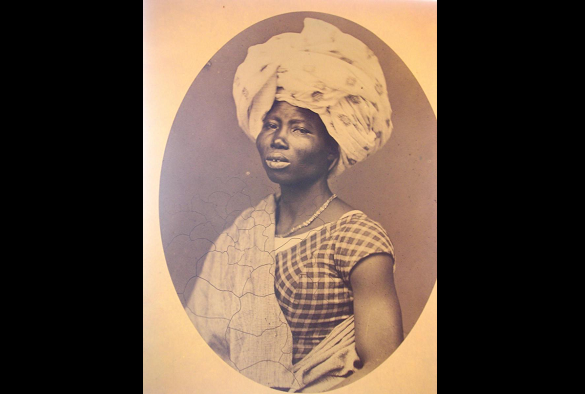
The Centre for the Study of International Slavery (CSIS) supports and shares leading research about human enslavement and its legacies. Founded as a partnership between the University of Liverpool and National Museums Liverpool, the Centre works together with other universities and organizations to develop scholarly and public activities related to slavery in its historical and contemporary manifestations. Liverpool is a stimulating home for CSIS activities. For Black History Month 2022, we are hosting numerous events, both on campus and at heritage sites in the city centre. They include:
Film Screening: Free Renty, A story of slavery, Harvard University and Decolonising Archives and Museums, and live Q&A with Director David Grubin on October 11th from 5pm-8pm
Free Renty (2021) is an American documentary film centring on the debate surrounding ownership of historic artefacts associated with slavery, are they the property of the enslavers or the enslaved? The film follows Tamara Lanier, an African American woman who has filed a lawsuit against Harvard University to acquire daguerreotypes (a historic form of photography) of her enslaved ancestor (her great-great-great grandfather) named Renty. These daguerreotypes were commissioned by a Harvard professor to use in their research and teachings in order to “prove the superiority” of the white race. This documentary, and the continued court case, advances contemporary debates around decolonising the archives and university curriculum.
After we screen the film, we will be joined live (via Zoom link) by the Director David Grubin. David is an accomplished director, writer, cinematographer, and producer who has produced over 100 films on topics of art, history, and science. He will discuss how he was introduced to Tamara Lanier, filming this documentary, and take questions from audience members.
Before the film screening we will host a drinks reception at the Yoko Ono Lennon
The event is free, please register at the link below
Dr Jim Downs and the ‘Maladies of Empire: How Colonialism, Slavery, and War Transformed Medicine’ on October 12th from 5pm-7:30pm
The Centre for the Study of International Slavery (CSIS) and the Centre for Health, Medical and Environmental Humanities (CHMEH) present a public book talk featuring Dr Jim Downs, Professor of Civil War and History at Gettysburg College, Pennsylvania. His newest publication, Maladies of Empire: How Colonialism, Slavery, and War Transformed Medicine re-examines the evolution of modern medicine to further investigate the advances made through the contributions of non-consenting subjects, including enslaved men, women, and children. This publication demonstrates a seminal methodology when articulating the history of medicine with glowing reviews from numerous academics, including:
“Maladies of Empire has a captivating writing style, is exhaustively researched, and is persuasive in argumentation. Jim Downs has written a game-changing book.”—Deirdre Cooper Owens, author of Medical Bondage: Race, Gender, and the Origins of American Gynecology
“In this brilliant and timely book, Jim Downs uncovers the origins of epidemiology in slavery, colonialism, and war…A most original global history, this book is required reading for historians, medical researchers, and really anyone interested in the origins of modern medicine.”—Sven Beckert, author of the Bancroft Prize–winning Empire of Cotton: A Global History
Before the presentation we will host a drinks reception at the 502 Building outside Teaching Room 4
The event is free, please register at the link below
Women, Gender, Slavery, and Abolition in Brazil with Prof Maria Helena Machado in-conversation with Prof Emily West on October 21st from 5pm-7:30pm
Professor Maria Helena Machado is a historian dedicated to the study of the social history of slavery, abolition, and post-abolition era in Brazil.
‘In conversation’ with Prof Emily West (University of Reading) Professor Machado will discuss the significance of a gendered history of slavery within Brazil, shedding light on an important historiography that has often been overlooked in more Anglocentric accounts of Atlantic slave regimes. She will also consider the importance of interdisciplinarity for the study of women and slavery (including visual cultures) and explore some of the sources (and archival absences) that historians of women and slavery in Brazil have encountered. Finally, she will offer potential avenues for future research on women and slavery in Brazil and within the history of transnational Atlantic slavery more broadly.
Before the presentation we will host a drinks reception at the Bluecoat
The event is free, please register at the link below